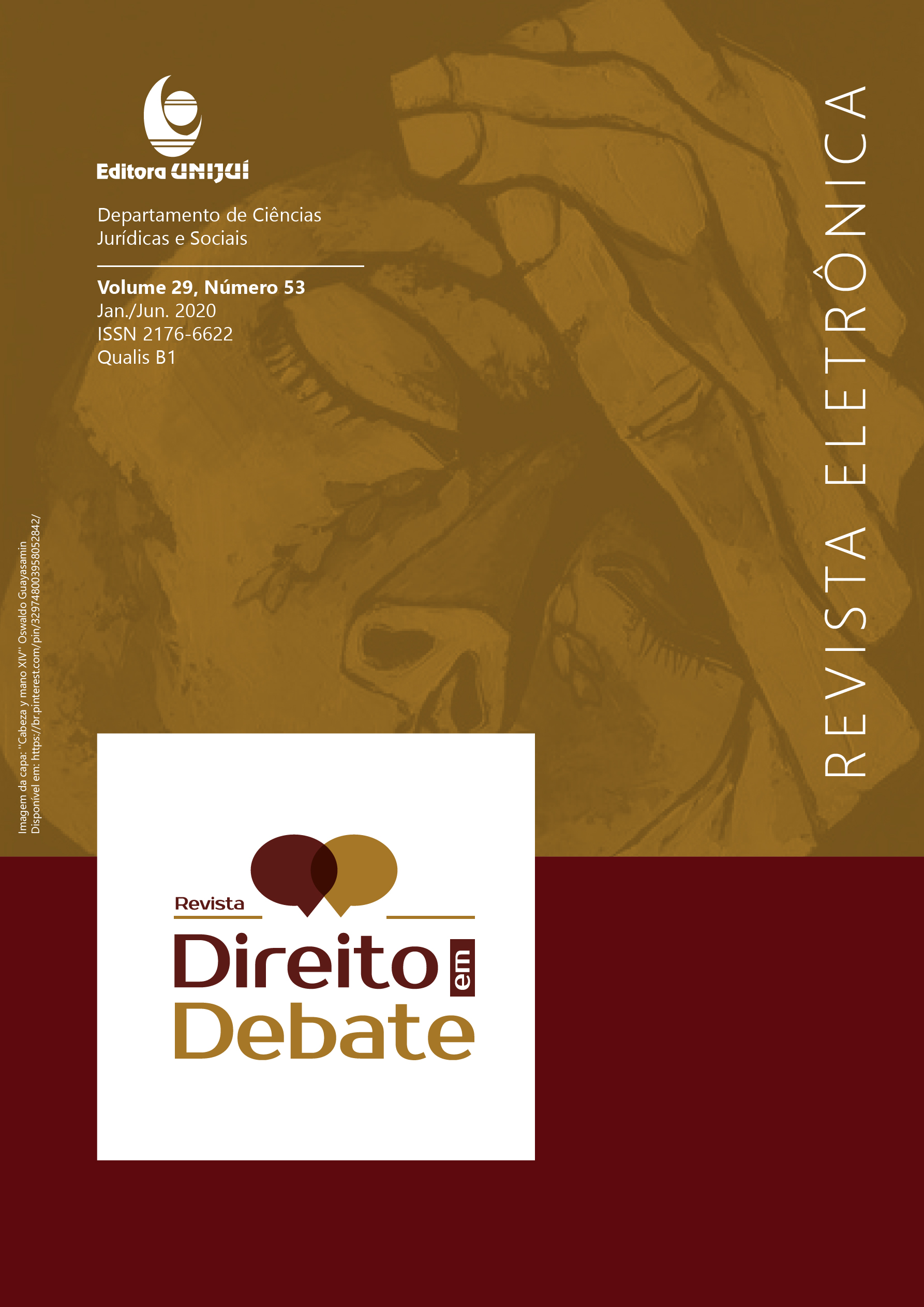BR-174 INTERMITTENT BLOCKAGE BY WAIMIRI-ATROARI INDIGENOUS PEOPLE
DOI:
https://doi.org/10.21527/2176-6622.2020.53.91-105Keywords:
Constitutional, Indigenous, Waimiri-Atroari, Consultation, TerritoryAbstract
Over the past forty years, the Waimiri-Atroari indigenous people have been blocking daily access at night to the stretch of highway BR-174 that cuts through their territory, between the states of Amazonas and Roraima, while the government, reinforced by the current speech in the federal government, tries to find ways to abolish the practice. Through deductive study, this research will start from a historical contextualization of the impacts of the construction of the road on the indigenous people, based on a colonialist policy of extermination, to then describe the problem as it persists in the present. Subsequently, the study addresses the plexus of constitutional rights guaranteed to indigenous peoples, such as permanent tenure and exclusive enjoyment for their own development and protection of traditionally occupied lands. Then, it approaches the possibility of State intervention on indigenous territory, as a measure of economic development, provided that the set of fundamental rights is observed, including prior, free and informed consultation of the indigenous people to be affected. Finally, the work shows that lowering and stigmatizing treatment of indigenous peoples by the Government is no longer tolerated by the current law, which abandoned any colonialist bias. State intervention that may limit indigenous territorial law must observe prior consultation and ensure effective intercultural dialogue, so that the affected people can take a leading role in the decision-making process regarding the issue of road blockage.
Downloads
Published
How to Cite
Issue
Section
License
By publishing in the Revista Direito em Debate, authors agree to the following terms:
Articles are licensed under the Creative Commons Atribuição 4.0 Internacional (CC BY 4.0), which allows:
Share — copy and redistribute the material in any medium or format;
Adapt — remix, transform, and build upon the material for any purpose, including commercial use.
These permissions are irrevocable, provided the following terms are respected:
Attribution — authors must be properly credited, with a link to the license and indication of any modifications made;
No additional restrictions — no legal or technological measures may be applied that restrict the use permitted by the license.
Notices:
The license does not apply to elements in the public domain or covered by legal exceptions.
The license does not grant all rights required for specific uses (e.g., image rights, privacy, or moral rights).
The journal is not responsible for opinions expressed in the articles, which remain the sole responsibility of the authors. The Editor, with the support of the Editorial Committee, reserves the right to suggest or request modifications when necessary.
Only original scientific articles presenting research results of interest, not previously published or simultaneously submitted to another journal with the same purpose, will be accepted.
References to trademarks or specific products are intended solely for identification purposes and do not imply any promotional endorsement by the authors or the journal.
License Agreement (for articles published as of 2026): Authors retain copyright over their articles and grant the Revista Direito em Debate the right of first publication.










